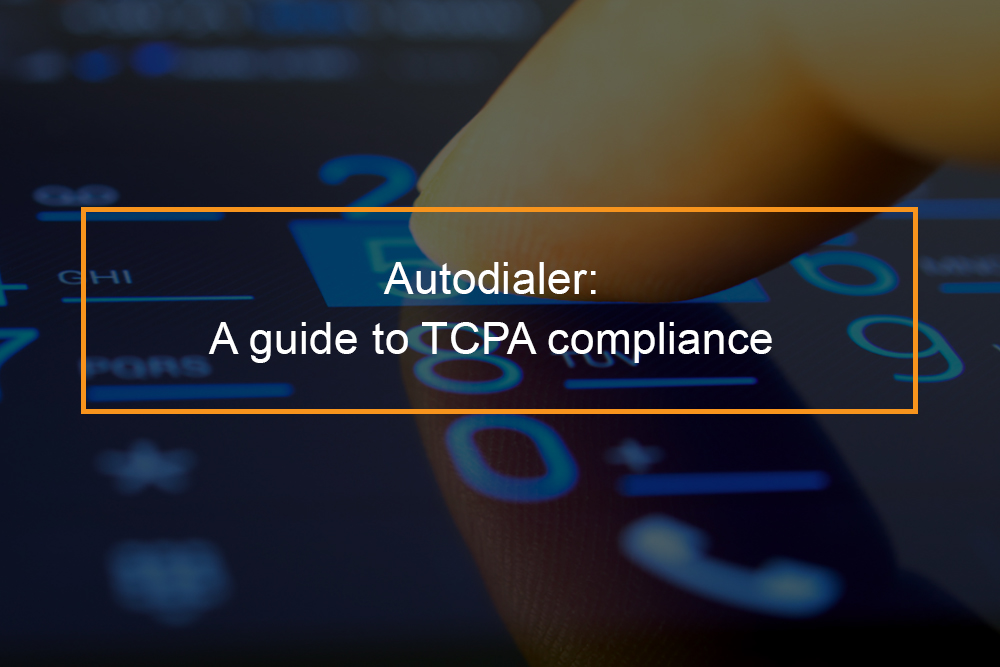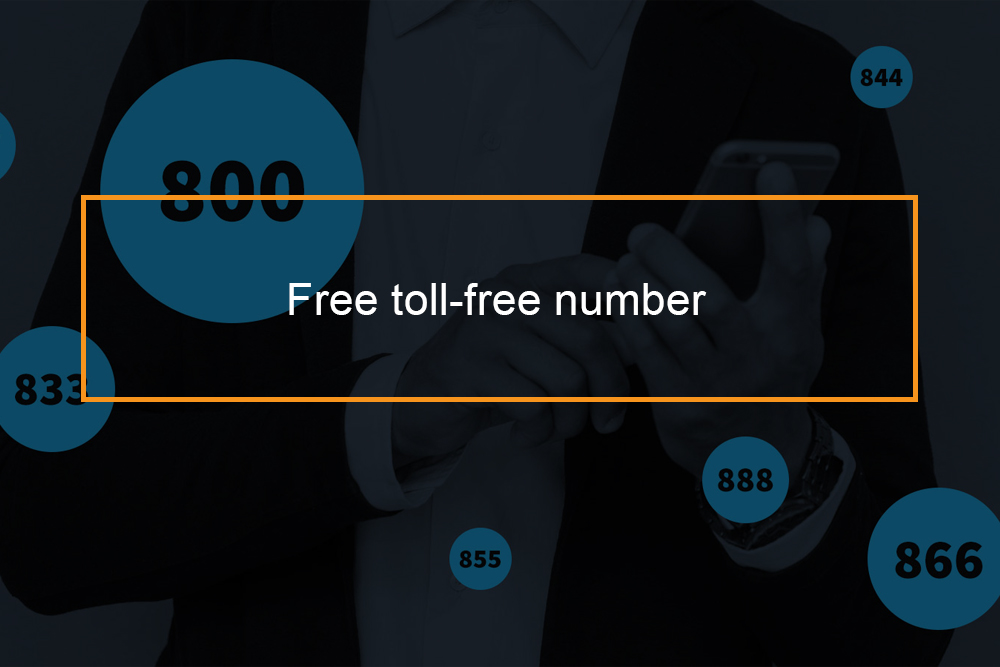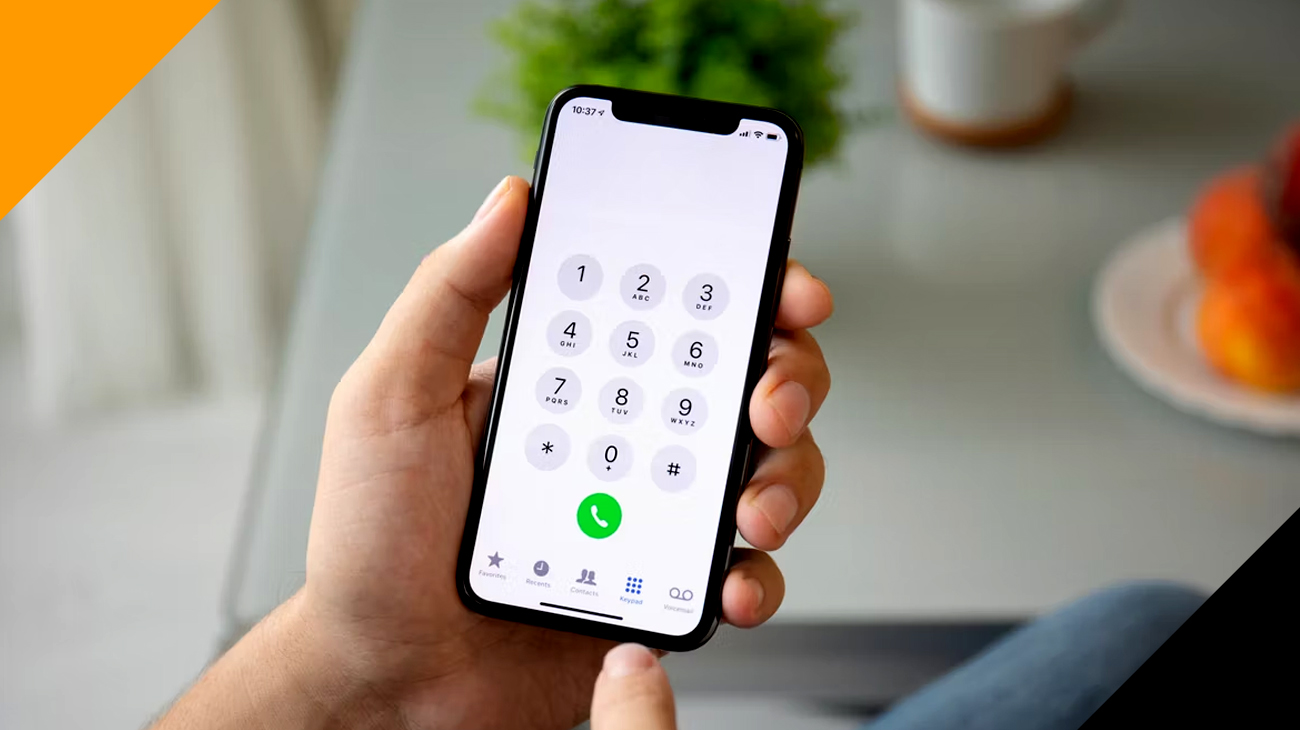
An auto dialer is not illegal; however, the Telephone Consumer Protection Act (TCPA) restricts the use of an autodialer to place uninvited calls. Calls placed from auto-dialers without achieving prior express consent from the call recipient is illegal. Typically, the TCPA restricts unsolicited automated telemarketing calls. Phone calls to cell lines and calls to landlines are treated differently.
The TCPA is a federal statute that limits various automated calls, faxes, and texts sent by telemarketers and others. The law is adopted by regulations from the Federal Communications Commission (FCC). The TCPA enables victims of illegal calls to collect damages of a minimum of $500 for every illegal call, fax, or text. Even though the TCPA has been around since 1991, the Federal Communications Commission often updates its regulation to match changes in technologies and to protect consumers from abusive telemarketing in a better way. New rules and regulations were implemented in 2013, which greatly increase consumer protection by requiring that telemarketers get a consumer’s consent in writing before placing a call or sending a text.
What does TCPA prohibit about auto-dialing?
What type of auto-dialing phone calls are prohibited by TCPA?
The TCPA rules apply to common carriers as well as to other marketers. Below are phone calls that TCPA prohibits as well as exceptions.
Calls to cell phones
Calls to mobile phones using any form of pre-recorded or artificial voice without your consent are illegal. Also, calls made to cell phones using an automated telephone dialing system without a customer’s consent are illegal. It is worth noting that this includes non-telemarketing and telemarketing calls.
There are exceptions, like healthcare-related or emergency calls. However, the exceptions are narrow. The kind of consent required relies on the type of call. Advertising and telemarketing calls to a cell phone require written consent. Therefore, if the caller is attempting to sell you something, it must have your consent in writing. The consent writing must unambiguously state the customer’s permission for automated calls from the organization.
Note that non-telemarketing calls to cell phones are also illegal if placed without a consumer’s consent. Nonetheless, consent for some of these calls requires not to be in writing. Even though a customer gave their consent to be called into the past, they can revoke the consent at any time. Any call placed after revocation is illegal.
Residential phones
It is illegal for telemarketers to auto-dial a landline using a prerecorded or artificial voice without the prior consent in writing.
Exceptions of landlines and residential phones
- Totally informational calls
- Calls for emergency calls
- Commercial calls that do not come with an advertisement or constitute telemarketing
- Also, it is allowed to use an auto-dialer to call a landline, as long as there is no prerecorded or no prerecorded or artificial voice used.
- Calls placed for a non-commercial purpose
Note other exceptions apply to calls made to any kind of line.
Time of day TCPA restrictions
The Telephone Consumer Protection Act prohibits any phone solicitation before eight and after nine o’clock.
TCPA restrictions on lawful pre-recorded calls
Even when an auto call is placed with the consent, the call must follow various rules;
- Any automated message must offer a number that enables the consumer to place a do not call request.
- Any automated message must recognize the caller
- For automated telemarketing text messages, the opt-out alternative must be automated and easily accessed by the customer
Revoking consent on telemarketing calls
Even when a customer has consented to a call, that consent can be revoked. Telemarketers are needed to keep track of consumers who tell them not to call, and they must respect those customer wishes. Customers can revoke any prior consent by opting out of future calls. This is true even if a customer’s number is not on do not call list. In case the telemarketer calls you again, they are violating the law. Bear in mind this applies to text messages. When revoking consent, select a method that allows you to document the revocation, like email, text, and recorded call.
Illegal auto dialer text messages
The Telephone Consumer Protection Act treats a text message as a call. Therefore, the same rules that apply to cell phone calls apply to texts. In case a customer receives a text that is attempting to sell him something, and he has not offered his consent, in writing, to receive that text, then it is illegal. Even a non-telemarketing text message without a customer’s consent is illegal, not unless it is for an emergency or healthcare-related. Revoking consent is simple as replying to the unwanted text message. In case the texter keeps sending texts, that it is violating the law.
What is the penalty for violating TCPA autodialer restrictions?
Suing for illegal auto-dialing calls and texts
The TCPA allows victims of illegal text messages and calls to sue the violator and recover a minimum of $ 500 for every illegal call or text. In case the violations are willful, then the penalty can even be as high as 1, 500.00 for every call or text. Due to the recoverable statutory damages, most consumer attorneys will present victims of illegal calls with no out-of-pocket charge from the customer. Exemptions and special treatment for some types of calls.
Calls that are specially treated
-
Mobile phone numbers from a landline
In case you port a number from a landline to cell service, the Telephone Consumer Protection Act restrictions on cell phone calls do not apply for the first fifteen days. Nonetheless, the caller knows this is a cell number or if the number is already listed on the caller’s do not call or the national do not call list, the exemption does not apply.
-
Calls by tax-exempt nonprofits
A phone call from a tax-exempt non-profit is not phone solicitation. This does not include these calls from most of the crucial sections of the law. Nonetheless, more of the Act’s provisions to companies hired by non-profits to place calls. Those organizations with the Federal Communications Commission company do not call lists.
-
Texts or calls from your mobile service provider about your service
Calls that are allowed
-
Calls associated with healthcare
Not subject to the written consent requirement. The caller must still have consent, but consent can be verbally offered or implied by providing a number.
-
Calls to assisted living facilities and hospital rooms
No calls using auto-dialers or prerecorded or artificial voice may be placed in a patient’s room in an elderly home, hospital or other health care facility, or other similar facilities.
-
Calls to emergency numbers
No calls using an autodialer or prerecorded or artificial voice may be placed on an emergency line of a hospital, service office, medical physician, poison control, health care facility, or fire protection or law enforcement agency.
What is an autodialer under the TCPA?
Definition of an autodialer under TCPA
In respect to the diverging views of what courts consider to be an automatic telephone dialing system (ATDS) as outlined by the Telephone Consumer Protection Act (TCPA), in this section, we discuss the competing interpretations of this main definitional component of the law.
The statutory definition of autodialers
The Telephone Consumer Protection Act explains an automatic telephone dialing system as a tool that has the capacity to produce or store or produce phone numbers to be called, deploying a random or sequential number generator; and to dial such numbers. Courts and the Federal Communication Commission have grappled with the meaning of this term.
The Plaintiff’s auto dialer perspective
Plaintiffs in TCPA actions present various arguments as to why the relevant dialing system is an ATDs. As one sample, plaintiffs often argue that the Federal Communications Commission has consistently held that systems having the capability to dial large volumes of numbers with less human intervention are regarded to be automatic telephone dialing systems.
Plaintiffs also argue that despite the FCC’s rulings, that the statutory language of the TCPA powers the argument that equipment that can dial a high volume of telephone numbers with less human intervention is an autodialer.









